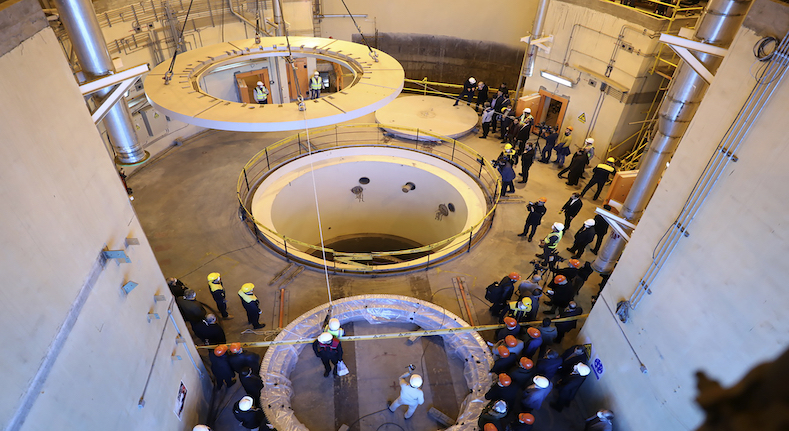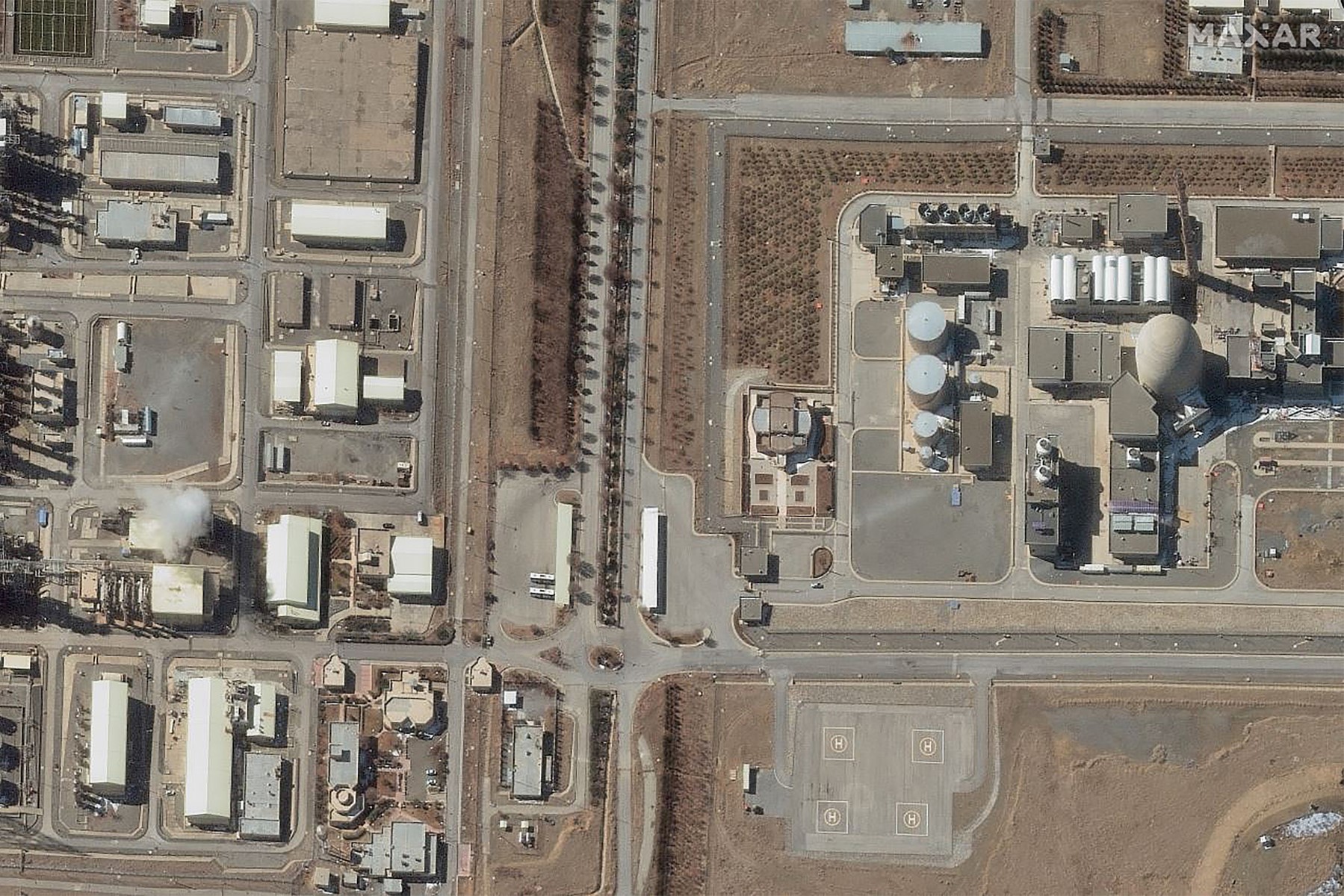Israel Issues Evacuation Warning for Area Surrounding Iran's Arak Reactor
Israel has warned civilians to evacuate near Iran’s Arak heavy water reactor, raising fears of a strike. The reactor, tied to potential plutonium production, was redesigned under the 2015 nuclear deal. IAEA urges restraint as tensions with Iran escalate.

By Kamaran Aziz
ERBIL (Kurdistan24) – The Israeli military issued a warning on Thursday urging civilians to evacuate the area surrounding Iran’s Arak heavy water reactor, according to the Associated Press (AP).
The alert was posted on the social media Telegram platform, in Farsi, and included a satellite image of the nuclear plant circled in red—a format consistent with prior warnings that preceded Israeli strikes.
The Arak reactor, located 250 kilometers southwest of Tehran, uses heavy water to cool its nuclear core. While this process supports peaceful energy generation, it also produces plutonium as a byproduct—material that could potentially be used to develop nuclear weapons, if Iran chooses to pursue such a path.
Iran agreed under the 2015 nuclear deal with world powers to redesign the Arak facility to mitigate concerns about plutonium production. Despite the U.S. withdrawal from the deal in 2018 under then-President Donald Trump, the United Kingdom continued assisting Iran in the redesign effort.
In 2019, Iran activated the secondary circuit of the Arak reactor, which did not breach the 2015 agreement. Nonetheless, the International Atomic Energy Agency (IAEA) has expressed concerns, particularly due to limitations imposed on inspectors that resulted in a loss of “continuity of knowledge” regarding Iran’s heavy water production.

AP reports that IAEA inspectors last visited Arak on May 14. The agency has been actively urging Israel not to target Iranian nuclear facilities.
This latest warning follows Israel’s ongoing airstrike campaign that has already targeted Iran’s enrichment site at Natanz, centrifuge workshops in the Tehran area, and a nuclear facility in Isfahan.
As part of the original 2015 accord, Iran agreed to sell surplus heavy water to Western countries to remain compliant. At one point, the United States purchased 32 tons of the substance for over $8 million—an aspect of the deal that drew criticism from domestic opponents of the agreement.
The current warning over Arak signals a potentially serious escalation in the Israel-Iran conflict, raising renewed fears over the safety of nuclear infrastructure in the region.
